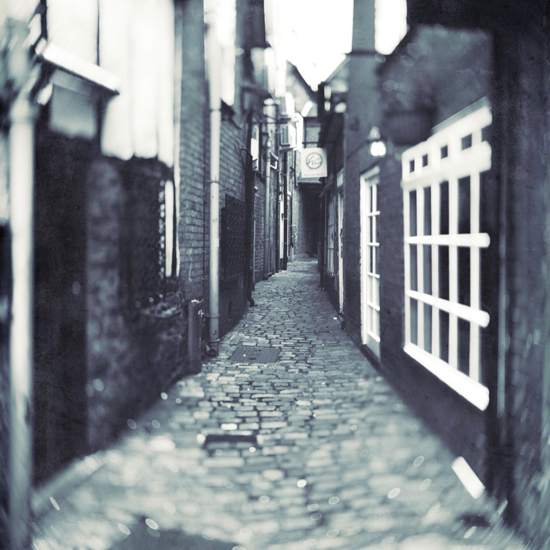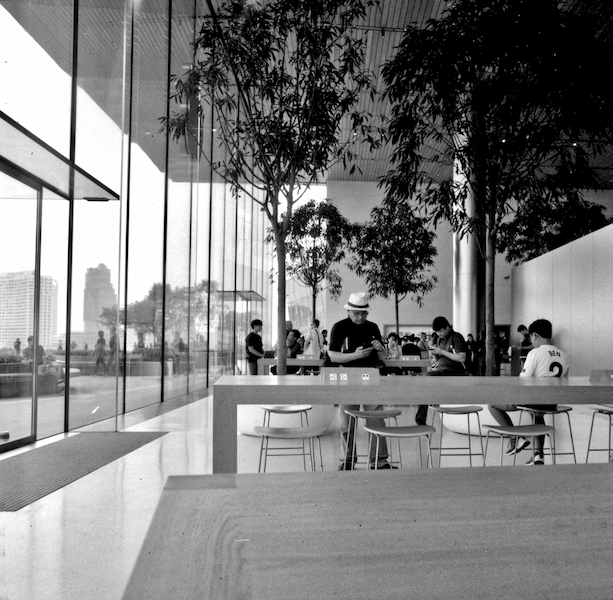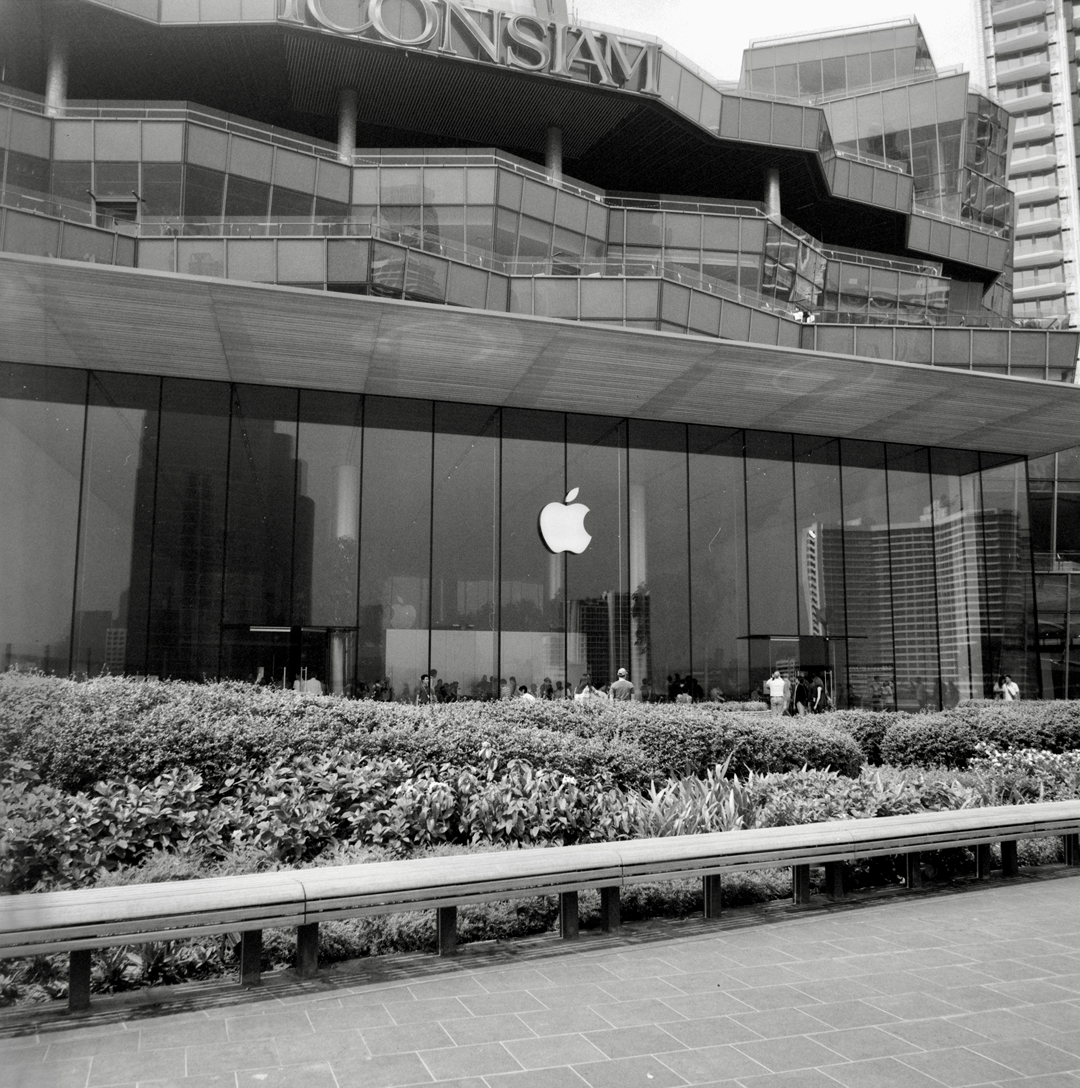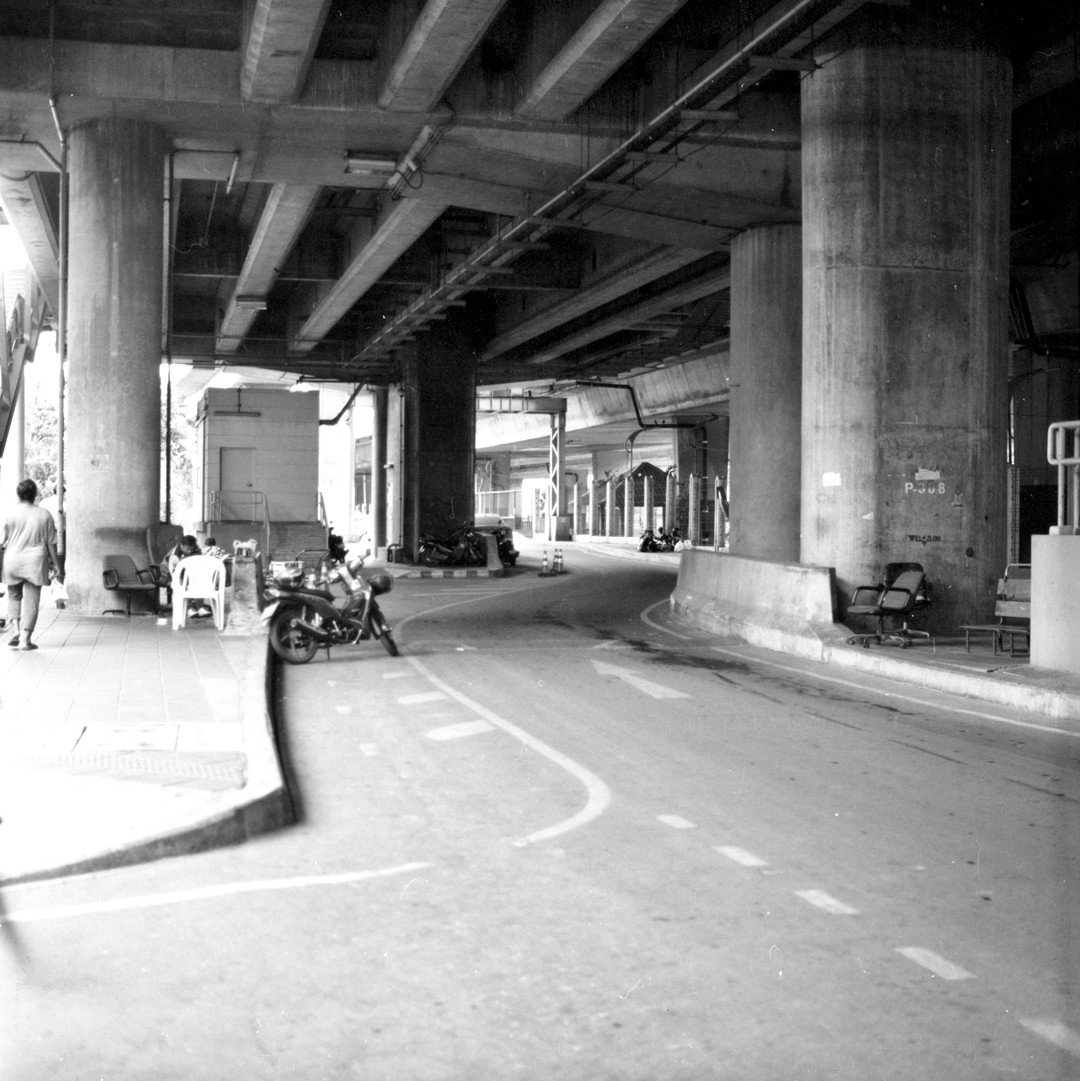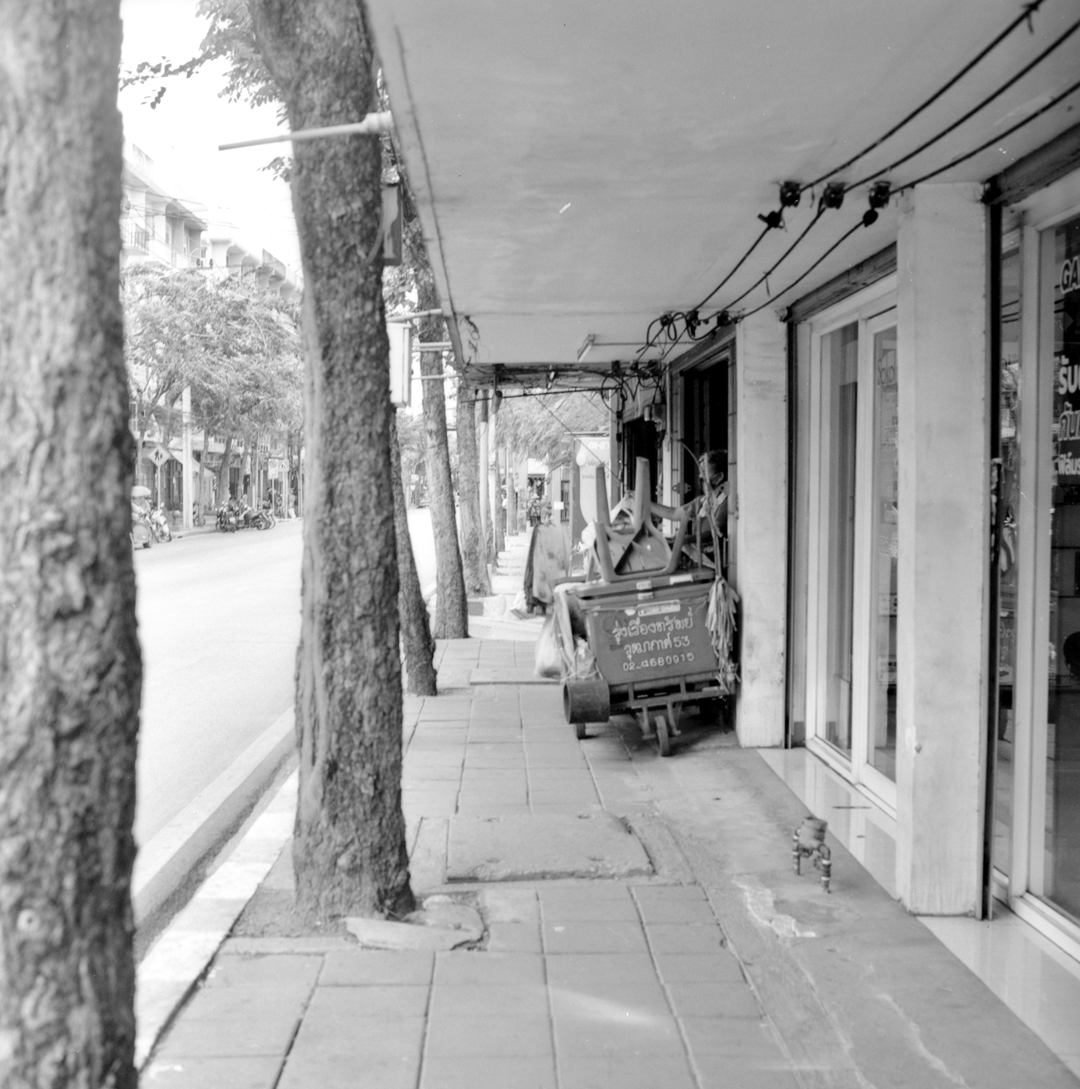|
|
Sunday Diversion: Ethical Contact Tracking; TIFF Problems in Photos; Online ShoppingBy Graham K. Rogers
I also see that the 4 stores in Switzerland will open 12 May with stores in Germany opening the same day, with Joe Rossignol (MacRumors) reporting there will be enhanced safety measures. I am not entirely convinced opening stores is the right move. Restrictions here have seen comparatively low infection and death figures, while the USA and UK have stratospheric statistics: politics and policy.
Apple Store, Bangkok
That has been in the news recently with its connection to the NHS contacts app that has been under development with connections also to Dominic Cummings and others from the Leave Campaign. There was serious criticism over the amount of data that was to be collected and what would be done with it, so when I saw that the British government steadfastly refused to consider the Apple-Google approach, I was concerned. After testing, more problems have arisen and the approach with an Apple-Google linked app is now looking more likely. Bearing in mind that several of the names were earlier linked to illegal activities by Cambridge Analytica and others, it seemed highly likely to me that this refusal to consider the Apple-Google approach centered around the amount of data to be collected and the ways in which it might be used. In the midst of this speculation about how data might be shared a hefty "note" was put online at the weekend after an analysis of the app and how it handled data: my speculation was on the right track. Following the rollout of the test app in the Isle of Wight last week, Dr. Michael Veale examined the published data protection impact assessment (DPIA) released by NHSX in relation to their contact tracing/proximity tracing app. The note is in the form of a PDF (available online), and it is clear that few of the safeguards are valid. In a theoretical scenario in the note, the use of a device near an Oyster terminal was put forward - the Oyster Card is a means of payment for transport in London and operates through cards and mobile phones. With that, and other means, it would be possible to link sets of data and create a complete snapshot of a person, much like Cambridge Analytica was able to do with Facebook data. The lessons are not being learned; or rather they are being learned all too well,
Hasselblad shots with KosmoFoto Mono 100 film
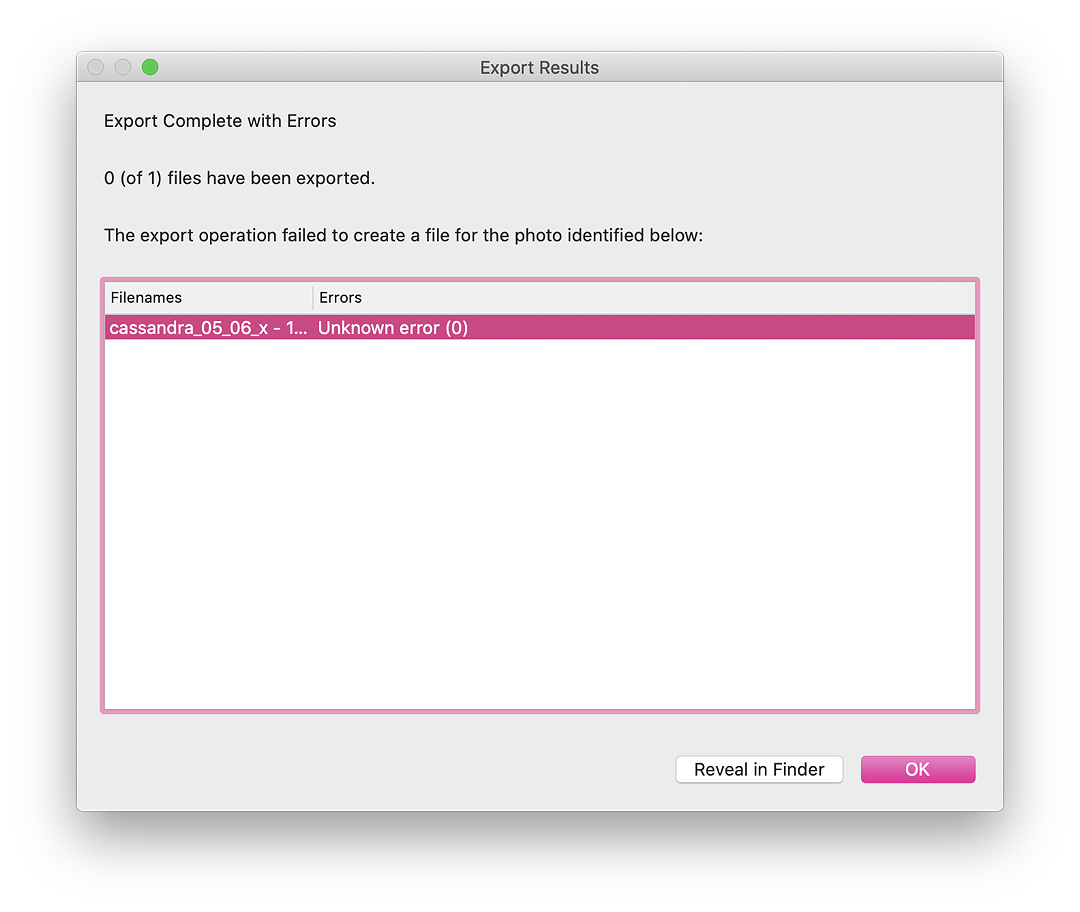
All is not lost however. I can still use the File menu in Photos and export an original. That would mean, however, any editing changes would not be shown. I am also able to drag an image from Photos into the Finder, although that is larger than I want (say, for a web page) so needs resizing. The couple I tried are in JPG format, which was not a particular problem. RAW files from the DSLR and images from the iPhone are unaffected, so can be modified and exported as normal. I dropped a note to Bombrich Software, the developers of Vuescan who have been helpful in the past. The reply asked if I was able to view the TIFF images in Preview. As all were opened after the scan automatically in Preview, that was not a problem, so Bombrich suggested that this is a Photos issue. I filed a bug report with Apple. If I had done that first, I would never be any the wiser as Apple never replies. Just to confuse me, if I edited any of the problem images in RAW Power (which now has access to the Photos library) and saved them, that adjusted image could then be exported from Photos.
The shutdown in the UK has been a good example. My mother has been locked in the house (with its massive garden) for weeks and is bearing up quite well. Instead of sending a shopping list to my sister, she phones her and she has to write down what my mother dictates, reading from a list that she has written down; my sister goes to the shops and then brings the shopping over, leaving it in a porch way so that there is no contact. My mother also phones orders to a delivery service once a week and they bring round fresh produce; and when she had to pay a bill, she phoned the bank who look at a computer screen and make the transaction using the credit card they already have a record of. Not that she uses the internet of course: too much trouble. I saw information about a gift hamper in a newspaper report this week. There was no link in the article, but it was easy enough to find Old Hall Farm, but the site is not well organized and there was no direct link to the Farm Shop, but that was fixed later when I made a comment in a series of emails about my order. I was able to order a hamper, although I had to enter a new delivery address in the payment method I used. So in 5 minutes, from across the world, I was able to order a gift hamper for my mother as a surprise. I have sent a sarcastic message with the gift about internet use. It arrived Saturday and I was messaged (What'sApp) late in the afternoon.
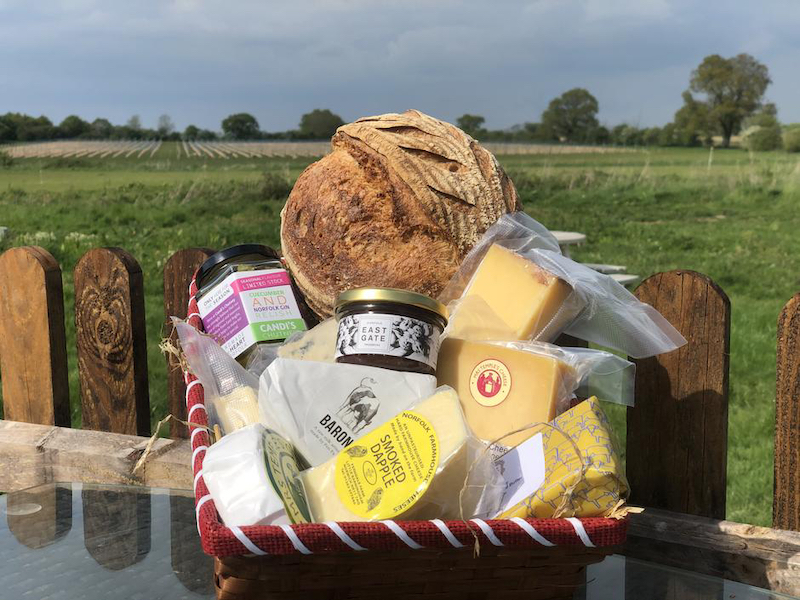
Cheese Hamper - Image from Old Hall Farm
The process is not totally smooth, but this is not unexpected. With the way this works, I found the delays and minor problems acceptable. The assistants have been apologetic when there is a problem, which happened when I bought the fridge as the payment method means switching to an external service and the link was not perfect. Before this, the order was confirmed, we chatted about delivery location and times, then the order was completed by the Mall staff, which is when the connection to a local bank had to be made: there are 4 methods of payment - direct debit using 3 banks and credit cards. After a confirmation, the button I pressed was supposed to make the link, but it sent me back to the payment confirmation page several times. The staff confirmed that it was working as they had tried, and asked me to keep trying. Eventually, the link connected and payment was made. I will take delivery of the fridge on Monday lunchtime.
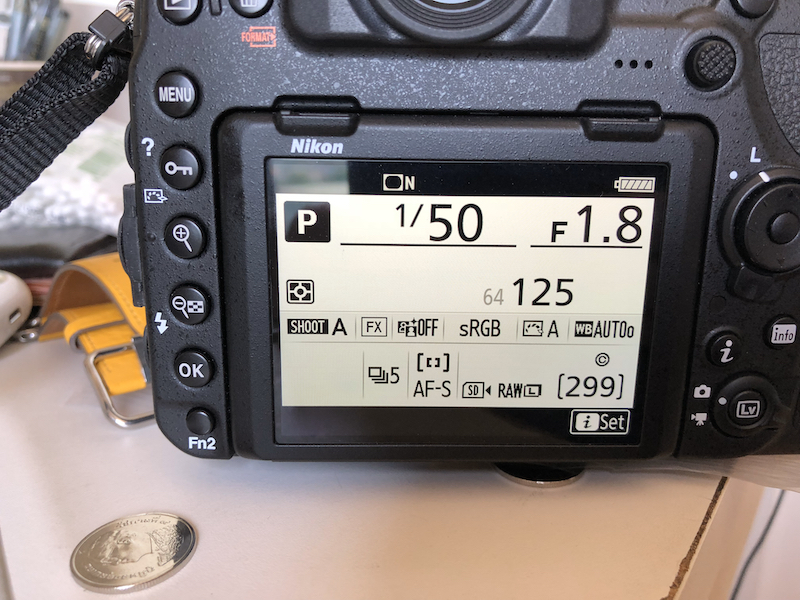
Graham K. Rogers teaches at the Faculty of Engineering, Mahidol University in Thailand. He wrote in the Bangkok Post, Database supplement on IT subjects. For the last seven years of Database he wrote a column on Apple and Macs. After 3 years writing a column in the Life supplement, he is now no longer associated with the Bangkok Post. He can be followed on Twitter (@extensions_th) |
|

